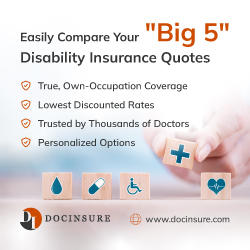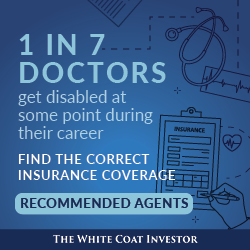What is “Own Occupation” Disability Insurance?
For medical professionals, navigating the complex world of disability insurance can be perplexing. A key term often encountered is “own occupation” insurance, which is particularly crucial for those in specialized fields. This type of insurance ensures that if you are unable to perform the specific tasks of your medical specialty due to disability, you are still entitled to benefits—even if you can work in another profession.
The Grey Area of Disability Defined
Unlike the straightforward nature of life insurance, disability insurance operates in a realm of nuance. The definition of disability can vary, offering different levels of protection based on your ability to perform your specialty, as opposed to any job for which you are qualified.
Specialty-Specific Coverage: A Must-Have for Physicians
Ensuring that your policy is tailored to your medical specialty, rather than a generic “physician” label, is essential. This specificity provides coverage continuity even if you shift to a less hands-on role within the medical field that may not be recognized as a disability under a less tailored policy.
Income Considerations in Disability Claims
Your disability insurance policy should provide financial support if you’re unable to continue in your chosen specialty. However, if you find success in another field and your income rises, your policy may adjust the benefits accordingly, potentially reducing the monthly sum you receive.

Choosing the Right Level of Coverage
Physicians need to carefully consider whether they require a policy that pays out only if they can’t work in any capacity or one that transitions from “own occupation” to “any occupation” after a set period. The level of coverage chosen will impact the policy’s cost and the extent of the insurance company’s risk.
The Expert’s Take on “Own Occupation” Disability Insurance
Travis Christy, DIA, a seasoned insurance professional, emphasizes the importance of “own occupation” coverage, especially for non-procedural physicians. This rider grants control over your career trajectory post-disability, allowing you to claim benefits even if you shift to a different medical role or a new field entirely.
Transitional and Modified “Own Occupation” Riders Explained
Transitional own occupation riders offer a safety net for those who can no longer work in their specialty but take up a different job. This rider compensates for any income gap, ensuring financial stability. On the other hand, modified own occupation coverage is more restrictive, only providing benefits if the insured is not working at all after a disability, making it a less flexible option.
Group Disability Policies: What You Need to Know
Group disability policies often come with limitations and may not offer the same level of individualized coverage that private policies provide. It’s crucial to understand the details of your group policy and how it defines disability to ensure adequate protection.

Northwestern Mutual’s Policy Evolution
Northwestern Mutual has updated its definition of disability, offering a “Medical True Own Occupation” definition that aligns more closely with the industry’s leading policies. This change provides better protection for physicians, ensuring they receive full benefits if they’re totally disabled from their primary medical duties, even if they choose to work in another field.
The Bottom Line on Disability Insurance for Doctors
While disability insurance may seem like an expensive investment, it’s a critical safeguard for a doctor’s most valuable asset—their ability to earn a high income through their specialized skills. Opting for an own occupation policy is the best defense against the financial devastation that could result from a disability before reaching financial independence.
Is Your Disability Policy Adequate for Your Needs?
Assessing whether your current disability policy offers true own occupation coverage or a modified version is essential. Understanding the nuances of your policy can make a significant difference in the event of a disability, ensuring you have the financial support you need to navigate life’s unexpected challenges.
Did you miss our previous article…
https://pardonresearch.com/?p=67277
